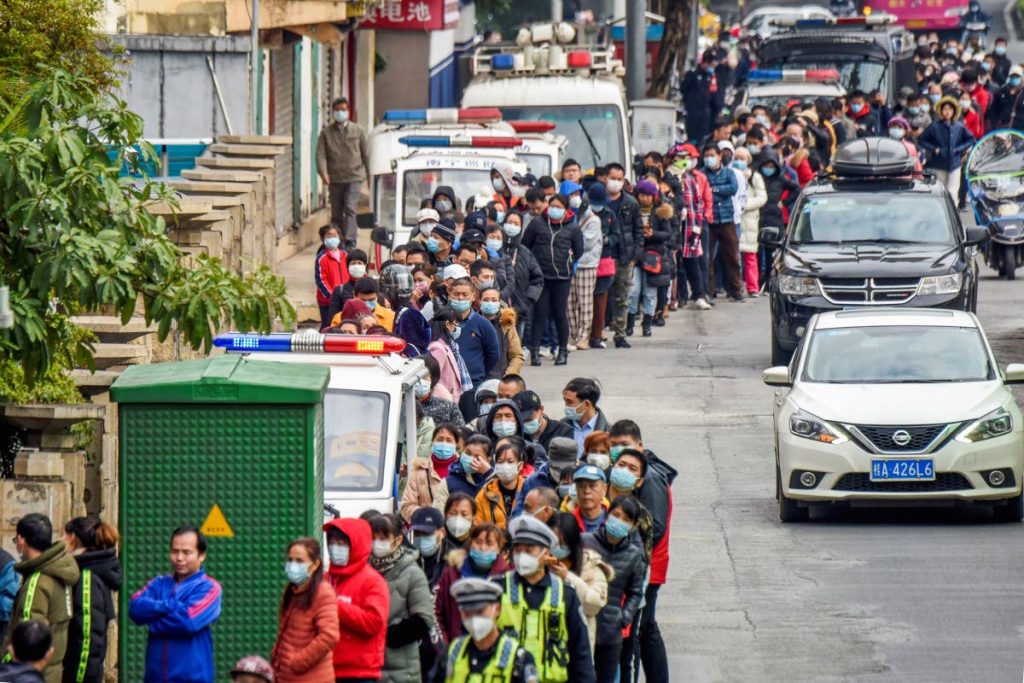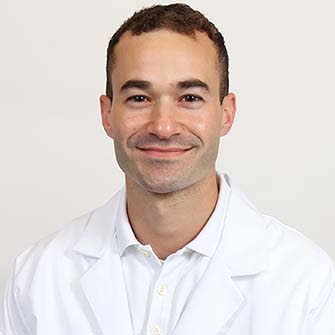Coronavirus and TT: Fighting with vigilance

THERE is yet to be a confirmed case of coronavirus in the Caribbean or TT. But its rapid spread – it has now spread to 18 countries – has caused global concern.
How concerned should TT and the region be? According to medical professionals and a former health minister, while people should be concerned, the region and TT have already taken precautionary measures against the spread of the virus.
TT also has taken precautionary steps. In a January 21 Newsday article Health Minister Terrence Deyalsingh ordered the screening of arriving international passengers using thermal scanners. He later said passengers coming in from the US, UK and Canada were being screened.
But former health minister Dr Fuad Khan says thermal scanners are not the best measure.
He believes TT should be worried, as “we get a lot of people coming from China to do projects.”
He thinks the best way to fight against the virus is serious vigilance.
“It is not to say that there are visitors coming through a system. These are people who come here to work for a long period of time. So I think our vigilance has to be upgraded, to the extent that people coming in directly from China need to have serious vigilance paid to their entry,” he said.
Khan believes people coming from infected areas should be screened through the advance passenger information system, which allows TT officials to know who is coming to the country and where they would have been.
He added that it takes at least seven to 14 days for a person infected with the virus (referred to by health professionals as 2019-nCoV) to show symptoms, and so if someone has recently been infected, the thermal cameras would not detect it.
“I would say they are wasting time looking for fevers. What you have to do is target focusing exactly where people are coming from and check them,” he added.
As health minister, when faced with an Ebola scare in 2014, Khan said, he implemented a lot of measures which are still in place. There are quarantine rooms at the Caura hospital, thermal cameras at entry points, and public health education measures, he said.
All one had to do to address the coronavirus was to “take out 'Ebola' and put in 'corona.' Everything is in place already for a quarantine movement.”
He said the virus stands out from its "family" of viruses because, in medical terms, it is highly virulent (fast-spreading, infectious and aggressive).
“When it infects you, it breaks down your tissues and causes a serious pneumonia of bacterial growth, which is very difficult (to treat). You do not have any antibodies in your body to combat this virus.
“It is extremely strong. Up to now, there is no vaccine for it one, and two, they don’t know where the origin is. Some are saying snakes, some are saying bats. They don’t know where it is coming from. That therefore makes it difficult to find a remedy or an antibody for it,” he said. The source of this new coronavirus remains unknown, the World Health Organization (WHO) says. However, reports have said the virus may have been transmitted to humans from snakes and bats.
He added TT needed to look at using masks, and "people have to wash their hands and make sure there is a no-touch technique when they are trying to open pipes or flush toilets or whatever.”
Dr Marlon Rampaul, a consultant in internal medicine and infectious diseases at the Eric Williams Medical Sciences Complex (EWMSC), says it was hard to say how worried people in TT should be as “it is all fairly new.”
He said identifying potential high-risk flights and having a suitable questionnaire screening tools were the best ways to begin addressing the virus.
Because the virus is hard to differentiate from things like the flu, Rampaul said the public has to be cautious, and if people develop any of the symptoms they should visit a healthcare provider.
“The most common cause of these symptoms right now in TT would still be the flu, so I would not think we need to have a significant concern for these coronaviruses as yet,” he said.
But he said the virus could spread from country to country.
“I think it is just a matter of learning from previous outbreaks in the past, like SARS and MERS, and having a heightened sense of security globally is important to prevent the spread of it in these different areas,” he said. SARS and MERS are viral respiratory illnesses and belong to the family of viruses called coronaviruses. People infected with these viruses developed symptoms including fever, cough, and shortness of breath and many of them died.
Dr Luke Raymond-Guillen, a TT infectious disease specialist based in the US, said he was not sure how worried people in TT should be, as he did not know how many Trinidadians go to China or how many people from China come to TT. But he felt many people were worried about the virus because so little is known about it and they are also worried about the mortality rate. A January 28 Washington Post article said the virus' mortality rate is just over two per cent and is "considerably lower than death rates from the respiratory coronaviruses that caused SARS."
Raymond-Guillen said people in spaces like France, Germany and the US were more likely to contract the virus because a lot of people travel to and from China.

“I think a lot of panic around it is related to the lack of information. There are so many unknowns about it. It has only been recently discovered and there have probably been a lot more cases that we know of that just were never diagnosed or confirmed.”
He said the fact that the virus is asymptomatic for a while contributes to its spread.
“So during that time you can be infected, therefore, invariably, spreading it to other people,” he said.
With travel in and out of China being restricted, Raymond-Guillen said eventually the rate of spread is going to come down and fewer cases would be seen.
He said the best way to prevent further spread is to educate the population as much as possible.
“If you are coming from China and you develop any symptoms, it is best to quarantine yourself and seek medical care.
“But it is best that you call ahead and let them know, ‘Hey, I am currently from this area where this coronavirus is...and I need medical care.' You come in and they are prepared for you and have you in isolation from the get-go. Also if you know you were in contact with somebody who is from that area and you’re manifesting symptoms.
“It is something to be aware of, look out for symptoms and quarantine yourself.”
Regionally, the Caribbean Public Health Agency (CARPHA) in a January 27 release said it had activated its incident management team and was co-ordinating the regional health response.
The agency also said there was still a lot to learn about the virus. It called on member states to be proactive and vigilant as well as reinforce surveillance measures at points of entry.
The agency said there were no restrictions on international travel and travellers did not have to take special precaution when travelling since there were no reported cases of it in the region.
SIDEBAR
To date, more than 130 people have died and more than 6,000 cases of the 2019 novel coronavirus have been confirmed. It has spread to 18 countries including the US, Canada and Australia after first being reported in Wuhan, the capital of China's Hubei province.
A January 28 BBC article also said Germany and Japan confirmed cases involving people who had not travelled to China but caught the virus from someone who had travelled to China.
Several countries and cities have taken precautionary measures to stem the spread of the virus. On Monday, Hong Kong’s leader Carrie Lam announced plans to cut cross-border travel between the city and mainland China.
Human coronaviruses are not new.
The World Health Organization's (WHO) website says, “The new virus is a coronavirus, which is a family of viruses that include the common cold, and viruses such as SARS and MERS. This new virus was temporarily named “2019-nCoV.” Coronaviruses are zoonotic, meaning they are transmitted between animals and people.


Comments
"Coronavirus and TT: Fighting with vigilance"